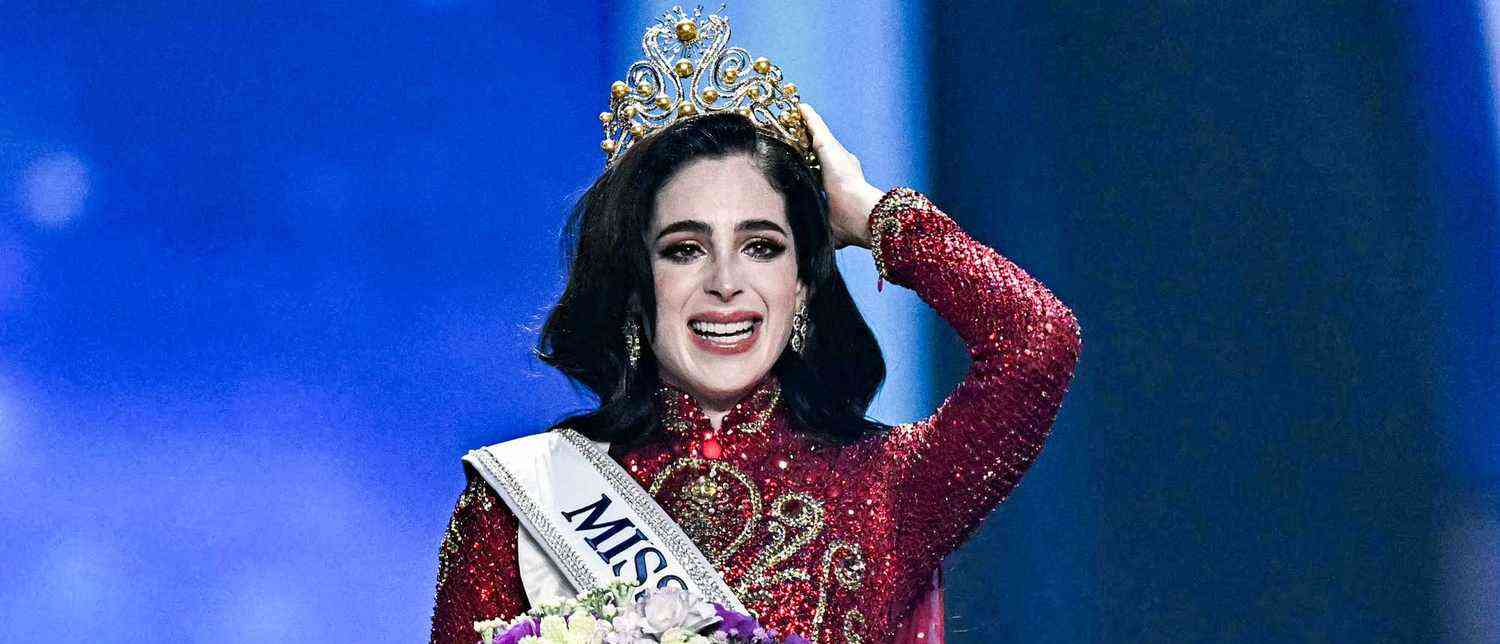The 74th edition of the Miss Universe pageant was expected to be a glittering celebration of global beauty, culture, and womanhood. Instead, it unfolded like a high-stakes drama—complete with walkouts, public feuds, accusations of vote rigging, shocking on-stage falls, political tensions, and viral controversies. What began as a routine international event quickly devolved into one of the most chaotic and debated Miss Universe competitions in recent memory.
Yet, from that whirlwind of clashes and confusion, one woman rose stronger than ever: Fatima Bosch of Mexico, the 25-year-old designer and social advocate who turned a moment of humiliation into a powerful stand for dignity. By the time she was crowned Miss Universe 2025, Bosch had transformed from a contestant embroiled in controversy into a global symbol of resilience and empowerment.
This is the complete story of how the road to the crown became a global spectacle—and how Fatima Bosch emerged as the queen who redefined the meaning of modern pageantry.
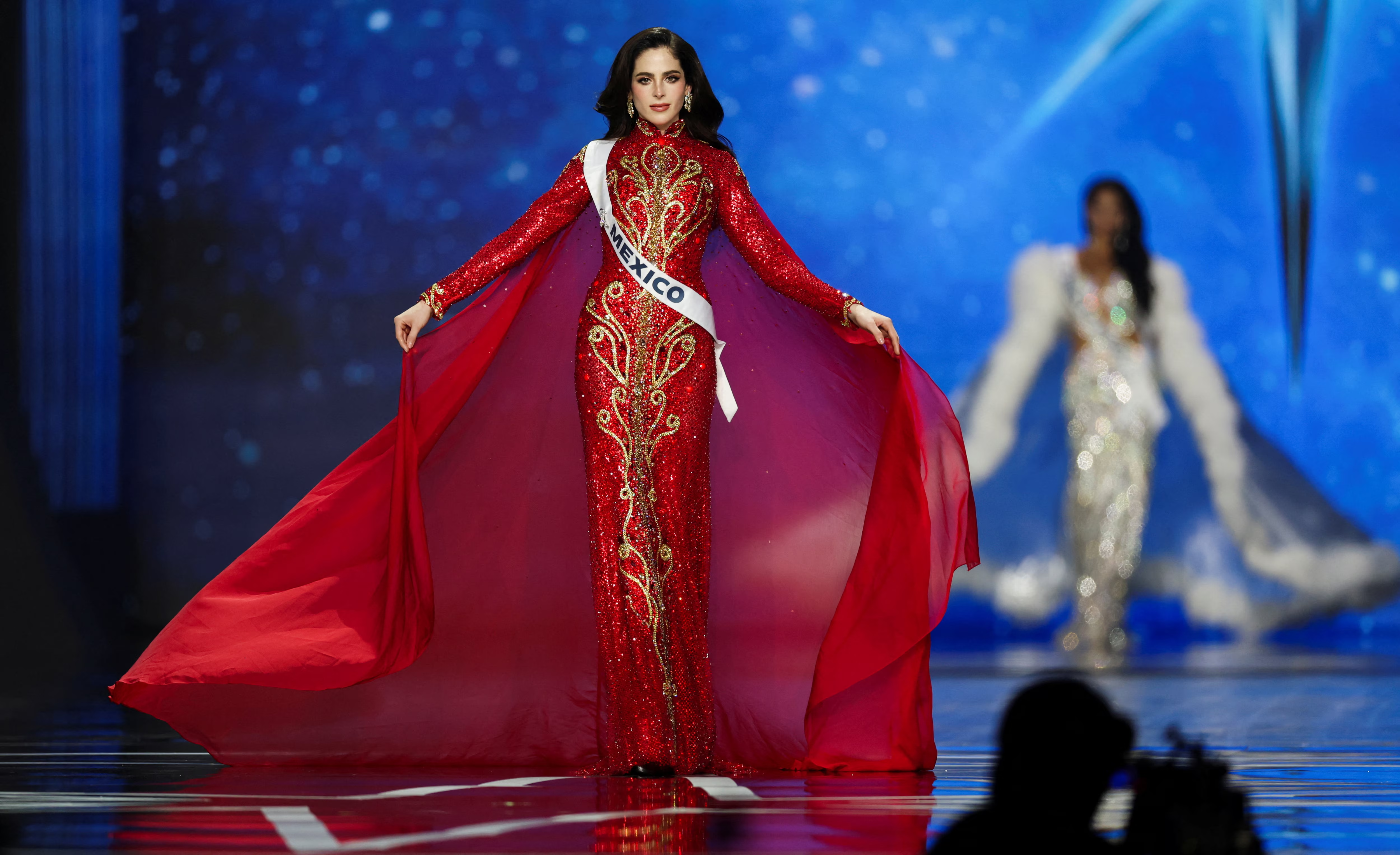
A Pageant in Crisis: Scandals Overshadow the Run-Up to the Finale
As contestants prepared to walk the runway for the Miss Universe 2025 finale, chaos was brewing behind the scenes. The Miss Universe Organization released a carefully worded statement attempting to address “recent public statements and social media posts,” pointing specifically to allegations of vote rigging. But that was only one among many issues plaguing the event.
Over the span of weeks, the competition—marketed as an inclusive, celebratory, and safe space for women of all backgrounds—faced:
-
Public insults directed at contestants
-
A dramatic walkout streamed live
-
A judge’s resignation over alleged secret voting
-
Another judge stepping down unexpectedly
-
Stage accidents involving two contestants
-
Political tensions surfacing through outfits and online reactions
-
A viral video involving mock drug use
-
Controversial accusations from the sidelines
What should have been a carefully choreographed event looked more like an unfolding global spectacle.
The Viral Incident: Miss Mexico’s Public Insult and Walkout
The controversies erupted in early November, when Miss Mexico, Fatima Bosch, claimed she was publicly chastised by the pageant’s Thai director, Nawat Itsaragrisil. According to Bosch, Nawat allegedly called her a “dumbhead” after she refused to post promotional content about Thailand, the host country, on her personal social media.
The confrontation, captured via livestream, spread rapidly across social media platforms. Bosch attempted to explain her stance, but when the situation escalated further, she walked out—followed by several contestants who supported her.
Reigning Miss Universe at the time, Victoria Theilvig, strongly defended Bosch:
“This is about women’s rights. To trash another girl, it’s beyond disrespectful. That’s why I’m taking my coat and I’m going.”
Even the Mexican president, Claudia Sheinbaum, weighed in, praising Bosch as an “example of how women should speak out.”
Under mounting pressure, Nawat apologised publicly, even wiping tears from his face during what appeared to be an official media event. But the incident had already ignited a global conversation about respect, fairness, and the treatment of contestants.
Accusations of Vote Rigging — Judges Walk Out
Just as tensions began to settle, the pageant faced another scandal. On the Tuesday before the finale, one of the eight judges, Omar Harfouch, resigned. The French-Lebanese musician claimed that a “secret vote” had been arranged to pre-select 30 contestants out of the 136 participants—two days before the final show.
“I could not stand before the public and television cameras pretending to legitimize a vote I never took part in,” Harfouch wrote on Instagram. He added that some of the allegedly pre-eliminated countries were war-stricken or geopolitically sensitive.
That same day, another judge, French footballer Claude Makelele, also stepped down, citing unforeseen personal reasons.
To contain the uproar, the Miss Universe Organization issued a rebuttal, labelling Harfouch’s claims as “inaccuracies” and suggesting his confusion stemmed from a separate “social impact initiative” not related to the main judging process.
According to the official statement:
“No impromptu jury has been created. No external group has been authorized to evaluate delegates or select finalists.”
But the damage to the pageant’s credibility was already visible in public discourse.
On-Stage Mishaps Add to the Drama
As if the controversies weren’t enough, the pageant saw two dramatic falls during the preliminary competition.
-
Miss Jamaica, Gabrielle Henry, fell from the main stage during the evening gown round. Her injuries were severe enough to require hospitalization.
-
Miss Great Britain, Danielle Latimer, tripped and fell flat on stage while performing in an outfit inspired by Eliza Doolittle. She later insisted the tumble was choreographed.
These scenes were widely shared across social media, further cementing the 2025 pageant as one of the most chaotic in recent history.
Political Tensions Reach the Runway
Even geopolitical conflict made its way into the event. Miss Palestine, Nadeen Ayoub, wore a gown emblazoned with the Dome of the Rock—an unmistakable symbol of faith and identity.
Meanwhile, Miss Israel, Melanie Shiraz, claimed she received death threats after what viewers believed was side-eye directed at Miss Palestine. Shiraz insisted the moment was a result of misleading editing, not intentional disrespect.
If the pageant aimed to unite cultures, this edition showcased just how deeply political sentiments can run through global stages.
Drug Mimicry Scandal: Miss Chile Apologizes
Adding to the controversy list, Miss Chile—Inna Moll—issued an apology after a viral TikTok showed her mimicking snorting white powder from her arm in a before-and-after makeup video filmed in Bangkok. Although intended humorously, the stunt drew sharp criticism from audiences and officials.
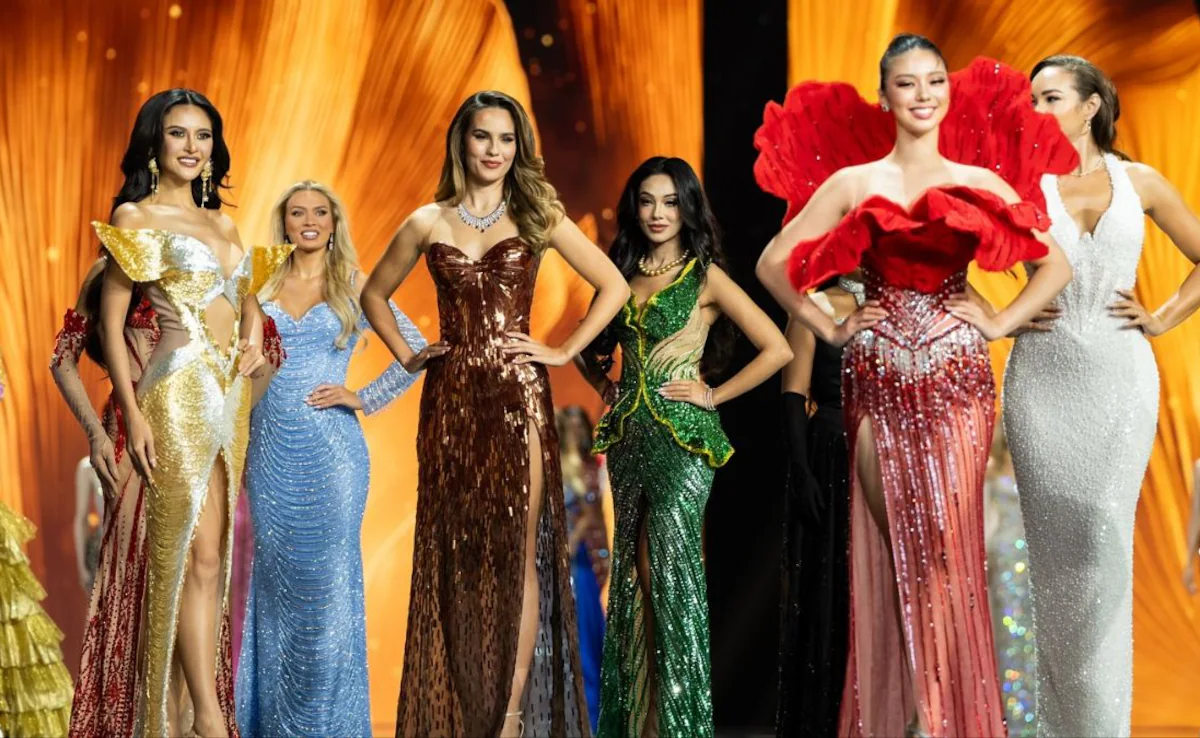
Miss Teen Cambodia Sparks Border Clash Debate
On the sidelines, the winner of Miss Teen Cambodia accused Thailand of provoking ongoing violent border clashes—an unexpected geopolitical accusation that brought additional scrutiny to the host nation.
At this point, the Miss Universe 2025 event appeared more like a diplomatic battleground than a beauty pageant.
A Finale to Remember: Fatima Bosch Crowned Miss Universe 2025
Amid the chaos, something remarkable happened. The controversies faded into the background on Friday night as the world watched the crowning moment of Fatima Bosch, Miss Mexico.
She beat crowd-favourite Miss Thailand, Praveenar Singh, as well as a strong lineup that included:
-
Stephany Abasali (Venezuela) – 2nd Runner-up
-
Ma. Ahtisa Manalo (Philippines) – 3rd Runner-up
-
Olivia Yace (Côte d’Ivoire) – 4th Runner-up
On social media, the Miss Universe organization posted:
“Tonight, a star was born. Her grace, strength, and radiant spirit captured the hearts of the world."
Despite her turbulent journey, Bosch returned to the stage not as a victim—but as one of the most celebrated queens in Miss Universe history.
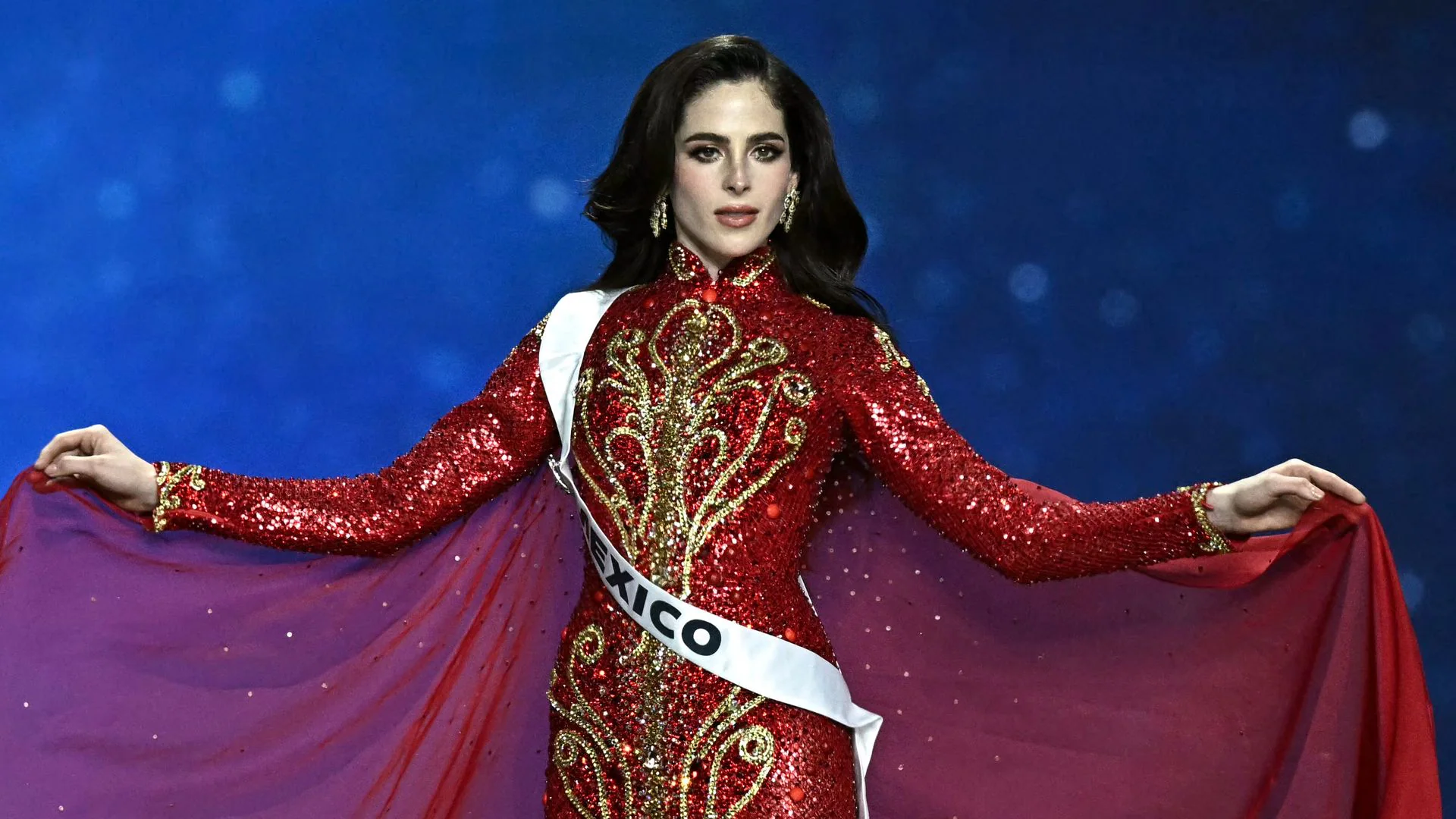
Who Is Fatima Bosch? The Designer, Advocate, and Trailblazer
Born in Tabasco, Mexico, Fatima Bosch is much more than a beauty queen. A 25-year-old fashion designer educated in the US and Italy, she is known for her work promoting sustainable fashion.
Her story is defined not by ease, but resilience. Diagnosed with dyslexia and ADHD at a young age, she refused to let learning challenges stand in the way of her dreams. Instead, she built a career grounded in creativity, advocacy, and compassion.
One of her most impactful initiatives is her work supporting children battling cancer. Bosch regularly donates her time to the Oncology Hospital of Tabasco and even hosts an annual holiday toy drive for young patients—an effort that has touched countless families.
Her win is historic, too: she is only the fourth Mexican woman to earn the Miss Universe crown, joining:
-
Lupita Jones (1991)
-
Ximena Navarrete (2010)
-
Andrea Meza (2020)
The Miss Universe Prize Package: A Queen’s Reward
Bosch’s win brings not only glory but also an impressive prize package:
-
$250,000 (approx. ₹2.2 crore) in cash
-
A $50,000 monthly salary during her reign
-
A luxury apartment in New York City for one year
-
A $5 million crown adorned with intricate craftsmanship
The crown, arguably the most symbolic part of her new role, will be hers to wear until the next Miss Universe is announced in 2026.
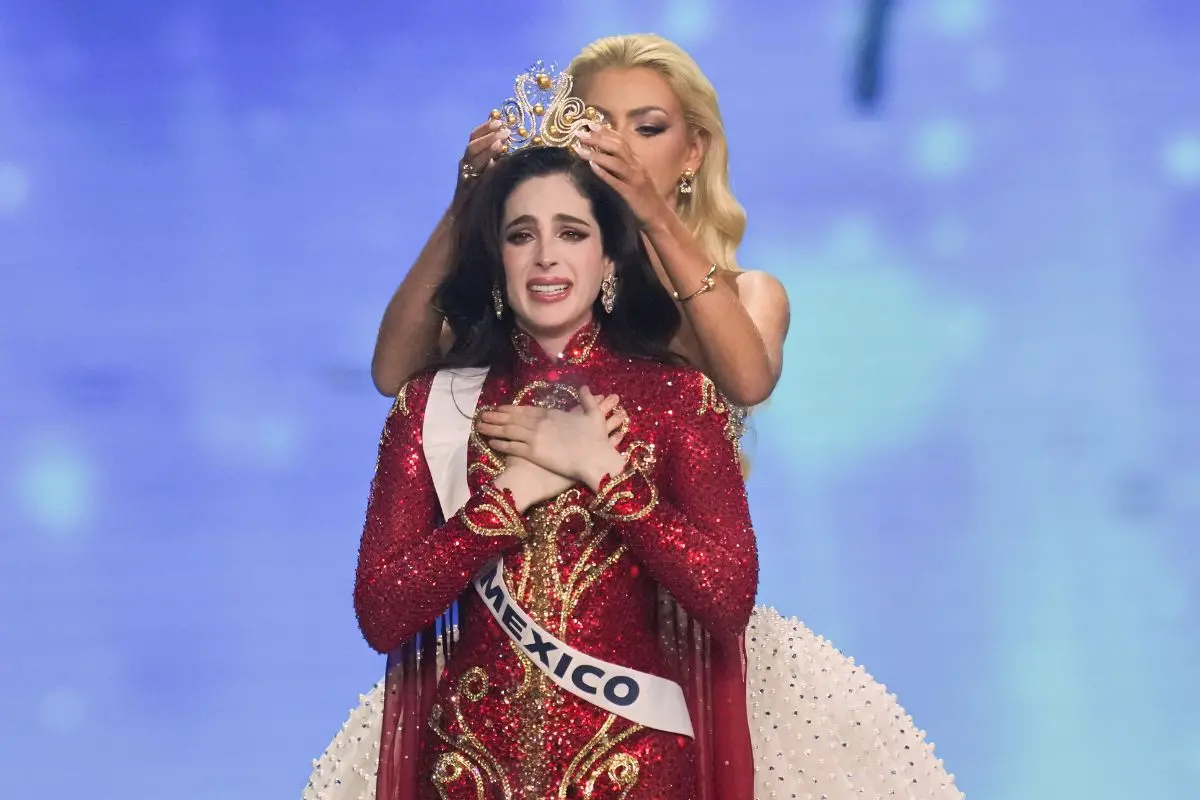
A Night of Triumph After Weeks of Turmoil
The grand finale brought together 121 delegates from around the world. The competition included interviews, national costume rounds, and evening gown performances before the final Top 5 took the stage.
When the moment came, the arena erupted in applause as last year’s queen placed the iconic crown on Bosch’s head. Mexico celebrated its newest titleholder, while social media buzzed with both excitement and debate.
But one thing was clear: Fatima Bosch stood unshaken—regal, confident, and dignified.
A Modern Queen Redefining Power and Womanhood
Fatima Bosch’s victory transcends the glittering stage of a beauty pageant. It marks a turning point where a contestant stood against disrespect, demanded dignity, and ultimately reshaped a global narrative about empowerment.
Her walkout was not an act of rebellion—it was a claim for respect. Her win was not merely a triumph of beauty—it was a victory for resilience, authenticity, and courage.
As she embarks on her year-long reign with international travels, philanthropic missions, and global advocacy work, Bosch carries more than a crown. She carries a message: When women speak up, the world must listen.
And so, Miss Universe 2025 did not just find a queen. It discovered a leader.
With inputs from agencies
Image Source: Multiple agencies
© Copyright 2025. All Rights Reserved. Powered by Vygr Media.

